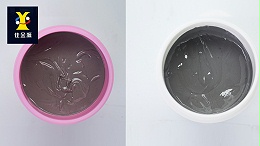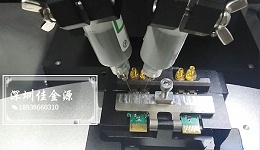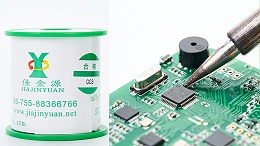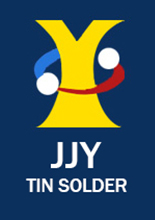
Solder wireAs an indispensable and important material in the electronics industry, it has a wide variety of types and extensive applications. From traditional leaded solder wires to environmentally friendly lead-free solder wires, from basic rosin solder wires to special-purpose nickel-plated and no-wash solder wires, each type of solder wire has its unique characteristics and application scenarios. Below, Shenzhen JJY Solder Wire Factory will provide a detailed introduction to the types of solder wires and their applications in different fields.
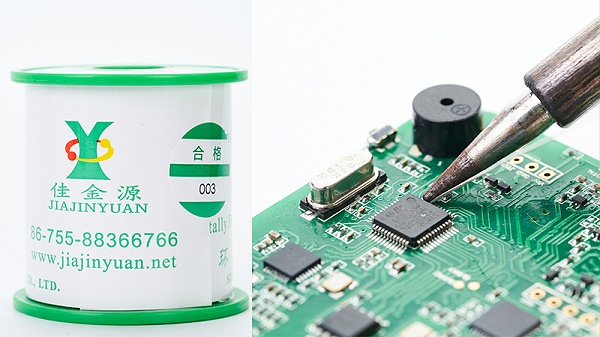
I. Types of Solder Wire
There are various types of solder wires, which can be classified according to different classification criteria. The following are some main classification methods:
Classified by environmental protection standards:
Leaded solder wire: Traditionally used solder wire, it has a relatively high lead content, a low melting point, and is easy to solder, but it does not meet modern environmental protection requirements.
Lead-free solder wire: An environmentally friendly type of solder wire that contains no lead or has extremely low lead content, meeting international environmental protection standards. However, it has a relatively high melting point and requires a higher temperature during soldering.
Classified by functional characteristics:
Rosin type solder wire: This is the most widely used type of solder wire, filled with rosin inside. It does not require additional flux during soldering and is suitable for soldering electronic and related components.
No-wash type solder wire: It uses a low solid content and non-corrosive flux, leaving very little residue after soldering. It is suitable for applications that require less residue, high insulation resistance, and a clean board surfacePCBPlate repair welding.
Nickel-plated solder wire: Suitable for soldering hard materials such as nickel components, wires, terminals, sockets, and lamp caps with nickel plating on the surface.
Brazed solder wire: Suitable for the brazed weld filling processing of high and medium-grade zinc alloy jewelry such as watches, bracelet watches, and chain sleeves.
Special solder wires: including stainless steel solder wires, aluminum solder wires, etc., suitable for soldering special materials.
Solid core solder wire: Free of flux, it can be used in combination with different types of flux during soldering and is suitable for products with some special process requirements.
Classified by metal alloy materials:
Tin-lead alloy solder wire: The main material of traditional solder wire, with a low melting point and easy to solder.
Pure tin solder wire, tin-copper alloy solder wire, tin-silver-copper alloy solder wire, etc., are suitable for different welding scenarios with various requirements.
Classified by the chemical composition of welding wire additives:
Rosin core solder wire, no-clean solder wire, resin-based solder wire, water-soluble solder wire, etc., meet different soldering requirements according to different chemical compositions.
Classified by melting point temperature:
Low-temperature solder wire, medium-temperature solder wire and high-temperature solder wire, depending on their different melting point temperatures, are suitable for welding scenarios with different melting point requirements.
Ii. Uses of Solder Wire
Solder wire is widely used in the electronics industry, covering almost all electronic products that need to be soldered. The following are the specific uses of solder wire in different fields:
Electronic and communication equipment manufacturing industry
Circuit substrate sintering, wave soldering of components, manual soldering of components, etc., are the main materials in the assembly of electronic products.
Applicable to mobile phone accessoriesICMulti-angle welding of flat wires, connecting wires, etc. ensures excellent welding results.
Aerospace industry
Aerospace equipment has extremely high requirements for welding quality, and solder wire plays a crucial role in ensuring the reliability and safety of the equipment.
Home appliance industry
Household appliances such as televisions, refrigerators and washing machines require a large amount of solder wire for soldering during the production process.
Jewelry and Accessories industry
Brazed solder wire is suitable for the brazed weld filling processing of high and medium-grade zinc alloy jewelry such as watches, wristbands, and bracelets, making the jewelry more exquisite.
Other special industries:
For instance, in the heavy non-ferrous metal smelting industry, solder wire is also needed for the pre-furnace batching of tin ore and the fluxing of tin ore.
Iii. Conclusion
Solder wire, as an important material in the electronics industry, has a wide variety of types and extensive applications. From traditional leaded solder wires to environmentally friendly lead-free solder wires, from basic rosin solder wires to special-purpose nickel-plated and no-wash solder wires, each type of solder wire carries different functions and missions. When choosing solder wire, it should be selected specifically based on the material and process requirements of the products to be welded to ensure the welding effect and product quality. With the advancement of technology and the increasing environmental protection requirements, the types and performance of solder wires will also be constantly updated and improved, contributing greater strength to the development of the electronics industry.
As a sixteen-year-old veteran solder wire manufacturer, JJY has been committed to the research and development, production and sales of solder wire. Our product quality is stable. It is made of high-purity virgin refined tin, electrolytic copper and pure silver materials, with few elemental impurities, sufficient degree, bright surface of the tin wire, uniform winding without tangling, uniform and continuous distribution of rosin flux, no continuous rosin, fast soldering speed, no sharp tip or spatter, good soldering wettability, easy to solder, no bridging, bright, full, firm and good electrical conductivity of the solder joint Highly compatible tin wires can be customized according to requirements. If you have any needs, please feel free to contact us.
